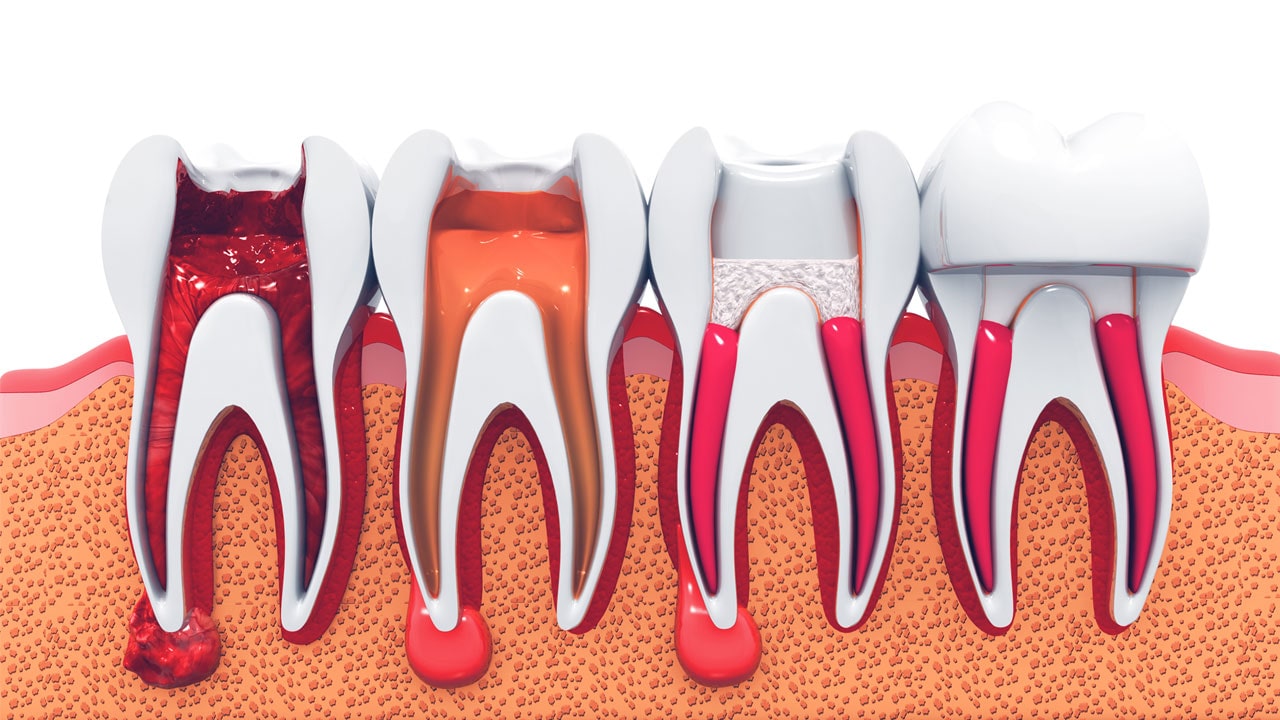
More than 15 million root canals are performed every year, according to the American Association of Endodontists. Despite the dental procedure being commonly performed, the first question many patients ask is, “Does a root canal hurt?” When you rely on the best general dentist, you don’t have to dread having the procedure performed. With the appropriate numbing medicine, root canal pain should be nearly non-existent. To better prepare you for the procedure, we’ll walk through the reasons for a root canal, what happens during the repair, and what to expect during post-care.
What Is A Root Canal?
The name “root canal” stems from cleaning the canals inside the tooth’s root. The procedure is used to repair a badly infected or damaged tooth. A root canal is often used as a method to save the tooth. During the procedure, a root canal specialist will remove the pulp, or heavily damaged area of the tooth.
The pulp lies just beneath the tooth’s enamel and a protective layer called dentin. It is a soft tissue that contains blood vessels, connective tissue, and nerves, which aid in the development of the tooth’s root. Once the tooth is fully developed, it no longer needs the pulp to survive. It will be nourished by surrounding tissue.
Once the pulp is removed, the canals are cleaned, disinfected, filled and sealed. The most common reasons for pulp damage include, a deep cavity, cracked tooth, trauma, or repeated dental treatment.
Steps of Root Canal
Your general dentist will suggest a root canal if severe damage has occurred within the tooth. A root canal specialist or endodontists will likely perform the dental procedure. During a root canal, you can expect:
- Dental X-Ray. If your dentist suspects a root canal treatment is necessary, he will order dental x-rays to determine exactly where the tooth decay is located.
- Anesthesia. To eliminate pain during the procedure, a local anesthesia is administered to the affected tooth. Pulpectomy: The affected tooth is opened, and the damaged pulp removed.
- Filling. The tooth roots are carefully cleaned and disinfected, then filled with a rubber-like material called gutta-percha. The roots are sealed to prevent further damage.
In some cases, your dentist may recommend a crown to be placed on top of the affected tooth to ensure further tooth decay is prevented.
Root Canal Pain
A root canal treatment has gained the reputation of being a painful, invasive solution, but that’s simply not the case. The Oradent Associates Family and Implant Dentistry team is highly experienced in recognizing the need for a root canal and completing the treatment in a comfortable, pain-free environment. In nearly every case, the oral challenge causing the need for the root canal is much more painful than the procedure itself.
If you’re experiencing swelling of the gums, or sensitivity or pain when you bite down or brush, you may be dealing with an infected pulp. Don’t allow unfounded fear of a root canal keep you in pain. Schedule your consultation with our caring staff and learn how a root canal treatment can stop your tooth pain and help prevent further issues in the future.